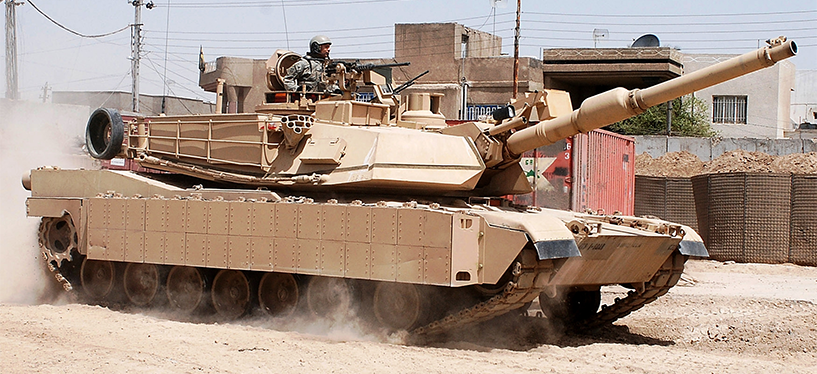Volume 8, Issue 4, September 6, 2016
During the middle of the summer legislative recess, the Barack Obama administration notified the U.S. Congress Aug. 8 of the proposed sale of $1.15 billion in tanks and other equipment to Saudi Arabia, starting a 30-day clock for House and Senate review.
Within a week, news broke of yet more civilian deaths at the hands of the Saudi-led coalition operating in Yemen, including a strike on a hospital operated by Doctors Without Borders (MSF); that strike subsequently led the organization to withdraw its staff from multiple facilities in the country. Last week, airstrikes reportedly targeted an imam’s family, killing civilians, including children.
 In response to the hospital bombing, State Department spokeswoman Elizabeth Trudeau said “U.S. officials have regularly engaged with Saudi officials… as well as other coalition members on the importance of mitigating harm. As part of this, we’ve also encouraged them to do their utmost to avoid harm to entities protected by international law such as this hospital.”
In response to the hospital bombing, State Department spokeswoman Elizabeth Trudeau said “U.S. officials have regularly engaged with Saudi officials… as well as other coalition members on the importance of mitigating harm. As part of this, we’ve also encouraged them to do their utmost to avoid harm to entities protected by international law such as this hospital.”
If the administration is sincere in its desire to hold Saudi Arabia accountable and leverage such sales in ways that encourage it to change its behavior, President Barack Obama should withdraw this sale and suspend delivery on those agreed earlier, rather than continue to reward Riyadh for its actions. Such steps would reinforce the importance of human rights and international law in U.S. arms transfer decisions.
Congress on Alert
Last week, a bipartisan group of 64 House representatives asked the president to withdraw the Saudi arms sale notification, arguing in part that they had not been given sufficient time to exercise their review responsibilities. That is a wise request, as Congress, which resumes work on Sept. 6, will have a small window of time to consider and vote on legislation in both the House and Senate to block the sale before the 30-day period expires.
After the initial review period, the president can proceed with the arms transfers. Nonetheless, Congress can still act up until delivery, which often occurs years later. If the president fails to withdraw the sale, then Congress should pursue a blocking path.
The Arms Export Control Act was amended in 2014 to allow Congress to request notification at least 30 days before delivery. Such pre-delivery notifications, however, require a joint request of the chair and ranking members of the Senate Foreign Relations Committee (SFRC) or House Foreign Affairs Committee. SFRC Chairman Bob Corker (R-Tenn.) and ranking member Ben Cardin (D-Md.) used these provisions for the first time late last year over a separate arms transfer to Saudi Arabia. Once again, they should exercise their authority to receive pre-delivery notification for this deal.
A Better Path
The problems with the proposed arms sales, however, go far beyond the limited time for congressional review. Arming Saudi Arabia only encourages irresponsible behavior and the misuse of U.S.-supplied weapons, despite U.S. commitments to take into account such abuse in arms transfers.
The United States has long been a top weapons supplier to Saudi Arabia. The country is the leading developing world arms purchaser (according to a recent Congressional Research Service report), and has increased its arms imports by 275 percent from 2011 to 2015 relative to the previous five years (according to the Stockholm International Peace Research Institute-SIPRI). In addition to the August notification, the administration has recently proposed providing support services, Phalanx weapons systems (February 2016), and more than $1 billion in guided bombs and air-to-ground munitions (November 2015).
The Saudi-led coalition’s actions (as well as those of the Houthi) have resulted in thousands of civilian deaths and contributed to massive suffering and displacement. Last week, Zeid Ra’ad Al Hussein, UN high commissioner for human rights, called for independent investigations into abuses in Yemen. In March, he said: “It would appear to be the case that the distinction between legitimate military targets and civilian ones—which are protected under international law—is at best woefully inadequate … . And at worst, we are possibly looking at the commission of international crimes by members of the [Saudi-led] Coalition."
Internationally, Saudi actions have been widely condemned and are leading to growing censure of arms sales to Riyadh.
On Feb. 25, the European Parliament approved a nonbinding resolution finding that European supplies of weapons to Saudi Arabia violate EU arms transfer rules and seeking an embargo on such transfers. Most European countries have now taken steps to tighten arms transfers and licenses to Saudi Arabia, according to a report issued last month by the ATT Monitor.
In revising U.S. conventional arms transfer policy in January 2014, the president included the goal “Ensuring that arms transfers do not contribute to human rights violations or violations of international humanitarian law.”
The United States is also a signatory to the landmark Arms Trade Treaty (ATT), which requires consideration of whether transferred arms would be used to commit or facilitate serious violations of international humanitarian or human rights law. Although treaty members last month were unprepared to tackle transfers to Saudi Arabia, the United States should set a better example.
Withdrawing the recently proposed sale to Saudi Arabia and holding delivery on those in the works is an opportunity to signal to Riyadh that it must act responsibly and ensure that future U.S. arms transfers are not used to target civilians and violate human rights.
—JEFF ABRAMSON, non-resident senior fellow with the Arms Control Association, and program manager of Landmine and Cluster Munition Monitor for the International Campaign to Ban Landmines-Cluster Munition Coalition
